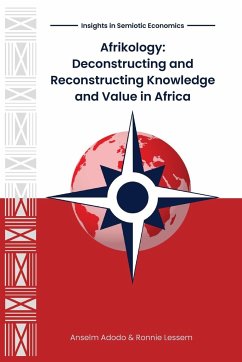During the twentieth century, global politics and economics have been marked by two politically, economically, and intellectually divi - sive rather than culturally and psychologically integrative forces. This has been reflected in the "East/West" mutually antagonistic divide of communism/capitalism and the North/South chasm of wealth and poverty. The result, worldwide, has been, to a considerable degree, stasis and disintegration. In this book, the authors argue that both capitalism and communism were born out of narrow views of our hu - manity, ignoring the cultural richness of the rest of the world. The evidence is everywhere: climate change, terrorism, rising poverty, political tension, social chaos and food insecurity. But this is not a book of lamentations. The authors present real case studies to dem - onstrate that there is an alternative to the current chaos: Afrikology. It is "Afri-" because it is inspired by ideas initially produced in Africa, the cradle of humankind; it is "ko (logy)" because it is based on logos, the word from which the world was originated, but at the same time, an episteme, a worldly-wise eco-logical knowledge, and consciousness. It stands for a plurality of epistemic directions. Knowledge, therefore, is an interpretation that is always situated within a living communal tradition, co-created by individuals, communities, and enterprises, specifically out of Africa's genius, alongside others.

